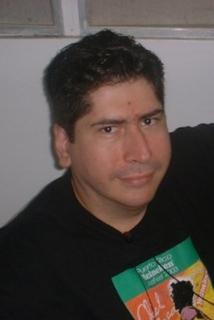108 years later, still waiting for democracy

108 years later, still waiting for democracy
How long for Puerto Rico?Jeffrey F. Farrow
How long for Puerto Rico?Jeffrey F. Farrow
Special to the Sentinel Posted October 1, 2006
As they celebrate Hispanic Heritage Month, members of Orlando's majority Puerto Rican Hispanic population are well aware that they have the same rights and privileges of United States citizenship as their neighbors; yet their friends and family living in Puerto Rico do not. This is because residents of Puerto Rico, while technically citizens of the United States, are deprived of the democracy this title should bring.One hundred and eight years ago, the United States seized the territory of Puerto Rico from Spain. Yet more than 100 years later, the 3.9 million people of Puerto Rico still do not enjoy full democracy. Their national laws are made by a Congress in which they have no vote and are executed by a president for whom they cannot vote. They exercise self-government only in local affairs.
Puerto Ricans have been granted U.S. citizenship since 1917 (when, during World War I, they also began to be drafted into the military). The islands, however, remain a territory whose ultimate political destiny --- whether they will become a state or a sovereign nation -- has never been determined.Puerto Rico's limbo also means that its people can be treated differently than their fellow citizens in the States.Congress has passed laws for Puerto Rico that enable companies owned in the States to avoid tax on income they attribute to Puerto Rico and that exempt residents from tax on local income. They also have denied citizens in the islands too poor to owe tax our country's social safety net.In 2003, for example, while companies used that tax loophole to avoid billions in U.S. taxes, the needy aged, blind and disabled in Puerto Rico got two dollars a day in federal assistance, one-sixth of the amount they would get in the States. Federal medical aid for the poor was one-tenth as much as in the States.This skewed treatment is a result of Puerto Rico's uncertain destiny and the lack of congressional representation.
Another consequence of Puerto Rico's situation is that there are now as many people of Puerto Rican origin in the States as in the islands.The lack of clear direction after more than a century as a territory is because some Puerto Rican politicians have confused the territory's options -- statehood, nationhood or continued status as a territory -- with a constitutionally impossible "best of all worlds" proposal.According to this false "Developed Commonwealth" option, Puerto Rico would be empowered to nullify most federal laws and enter into international trade and other agreements states cannot. The federal government would be required to grant an additional subsidy for the local government and new tax breaks for companies from the States but continue all current aid to Puerto Ricans, totally free trade and citizenship.But the complications of local politics do not absolve U.S. officials of their responsibility to enable Puerto Ricans to attain a democratic form of government.Recognizing this, President Bill Clinton launched a task force to consider Puerto Rican democracy proposals, clarify the real options, and recommend a process for determining the islands' future. Continuing under President George W. Bush, the task force has recommended that Congress provide for a vote on whether Puerto Ricans want to replace the status quo. If they do, there would then be a vote on whether to seek statehood or nationhood, and the task force would recommend legislation to implement the choice.Florida Sen. Mel Martinez, along with 14 others, has sponsored a bill for the first vote.
Puerto Rico's non-voting representative and 109 other House members have sponsored a bill for the entire process. The territory's legislature supports the legislation but its governor is lobbying for authorization for a local convention to choose among statehood, independence and his "Developed Commonwealth" Proposal.Congress cannot support "Developed Commonwealth" because it runs afoul of our Constitution, which specifically assigns it responsibility for making policy regarding territories.Congress has an obligation to resolve Puerto Rico's status so that 3.9 million people in a territory the U.S. took through war and who still do not have a democratic form of government at the national level have an opportunity to choose a permanent status. If Congress does not act, Puerto Ricans will be denied the choice -- and the democracy -- that they deserve.Jeffrey F. Farrow was the co-chair of the President Interagency Group on Puerto Rico from 1994 to 2001. He wsa the staff director of the U.S. House of Representatives Subcommittee on Insular Affairs from 1982 to 1994.



0 Comments:
Publicar un comentario
<< Home